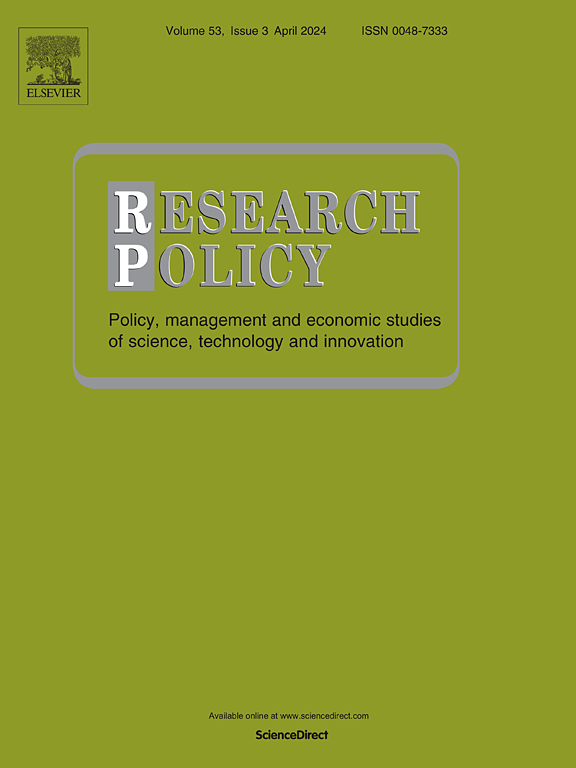When the drugs (don’t) work: The role of science in product commercialization
IF 8
1区 管理学
Q1 MANAGEMENT
引用次数: 0
Abstract
While the relationship between science and firms’ innovation performance has been extensively studied, little is known about how the nature of scientific input affects successful product commercialization. This paper aims to address this gap by analyzing data linking scientific publications to the eventual product market outcomes of early-stage drug candidates in the pharmaceutical industry. Examining the basic and applied nature of the scientific knowledge base underlying 5,613 early-stage drug candidates from 1995 to 2008, I find that despite the importance of advances made in basic science, its predictive and abstract outcomes on their own are unlikely to foster the development of drug candidates that achieve market approval. The substantial gap between the predictive rules from basic research and the unpredictable outcomes that emerge in variable states of human physiology, seems to limit the extent to which fundamental insights from basic science reduce the uncertainty related to the complexity of the human body in the real-world environment. In contrast, I show that early-stage drug candidates that combine fundamental insights from basic research and contextualized insights from applied science are significantly more likely to achieve market approval. This effect is particularly pronounced when these drugs have a more novel character and when firms leverage their own contextualized insights in the development of these drugs.
当药物(不起作用):科学在产品商业化中的作用
虽然科学与企业创新绩效之间的关系已被广泛研究,但人们对科学投入的性质如何影响成功的产品商业化知之甚少。本文旨在通过分析将科学出版物与制药行业早期候选药物的最终产品市场结果联系起来的数据来解决这一差距。研究了1995年至2008年期间5613种早期候选药物的基础和应用科学知识库,我发现,尽管基础科学取得的进展很重要,但其预测性和抽象的结果本身不太可能促进候选药物的开发,从而获得市场批准。来自基础研究的预测规则与在人类生理学的可变状态中出现的不可预测结果之间的巨大差距,似乎限制了基础科学的基本见解在多大程度上减少了与现实世界环境中人体复杂性相关的不确定性。相比之下,我表明,结合基础研究的基本见解和应用科学的情境化见解的早期候选药物更有可能获得市场批准。当这些药物具有更新颖的特性时,当公司在这些药物的开发中利用自己的背景见解时,这种效果尤其明显。
本文章由计算机程序翻译,如有差异,请以英文原文为准。
求助全文
约1分钟内获得全文
求助全文
来源期刊

Research Policy
MANAGEMENT-
CiteScore
12.80
自引率
6.90%
发文量
182
期刊介绍:
Research Policy (RP) articles explore the interaction between innovation, technology, or research, and economic, social, political, and organizational processes, both empirically and theoretically. All RP papers are expected to provide insights with implications for policy or management.
Research Policy (RP) is a multidisciplinary journal focused on analyzing, understanding, and effectively addressing the challenges posed by innovation, technology, R&D, and science. This includes activities related to knowledge creation, diffusion, acquisition, and exploitation in the form of new or improved products, processes, or services, across economic, policy, management, organizational, and environmental dimensions.
 求助内容:
求助内容: 应助结果提醒方式:
应助结果提醒方式:


